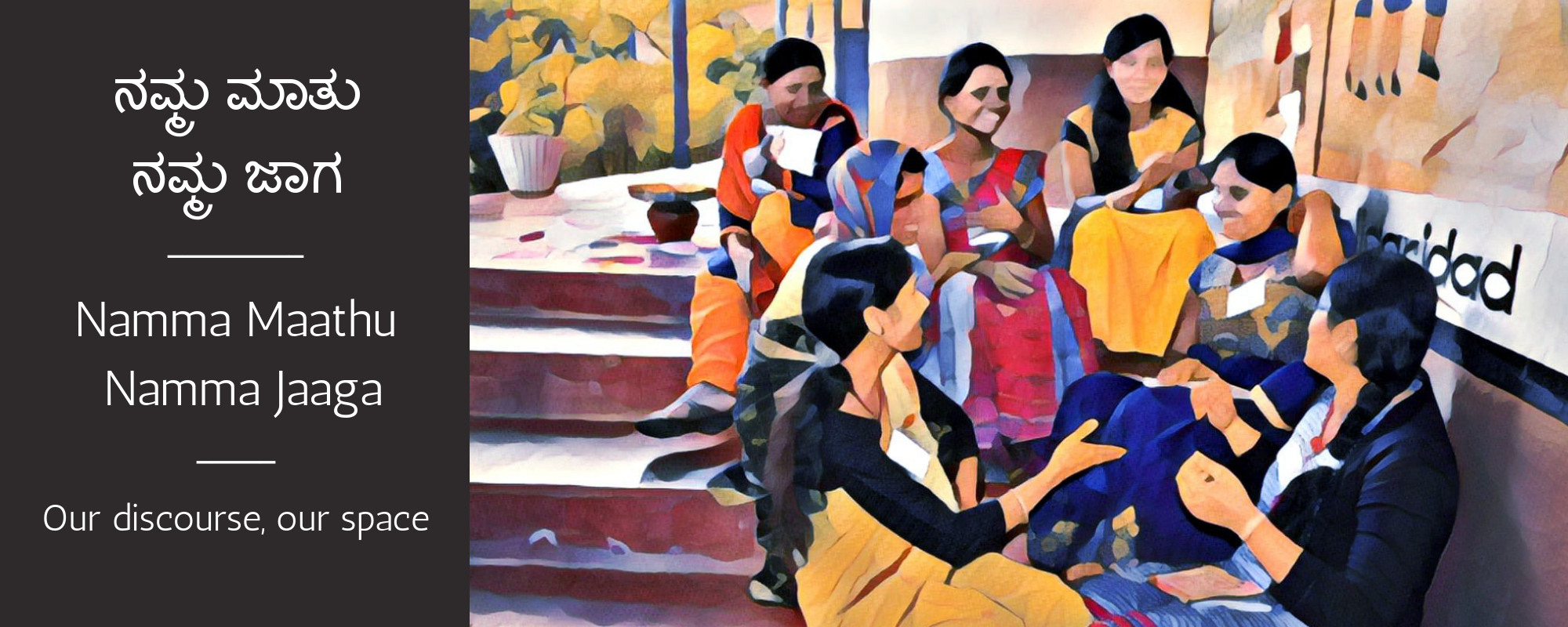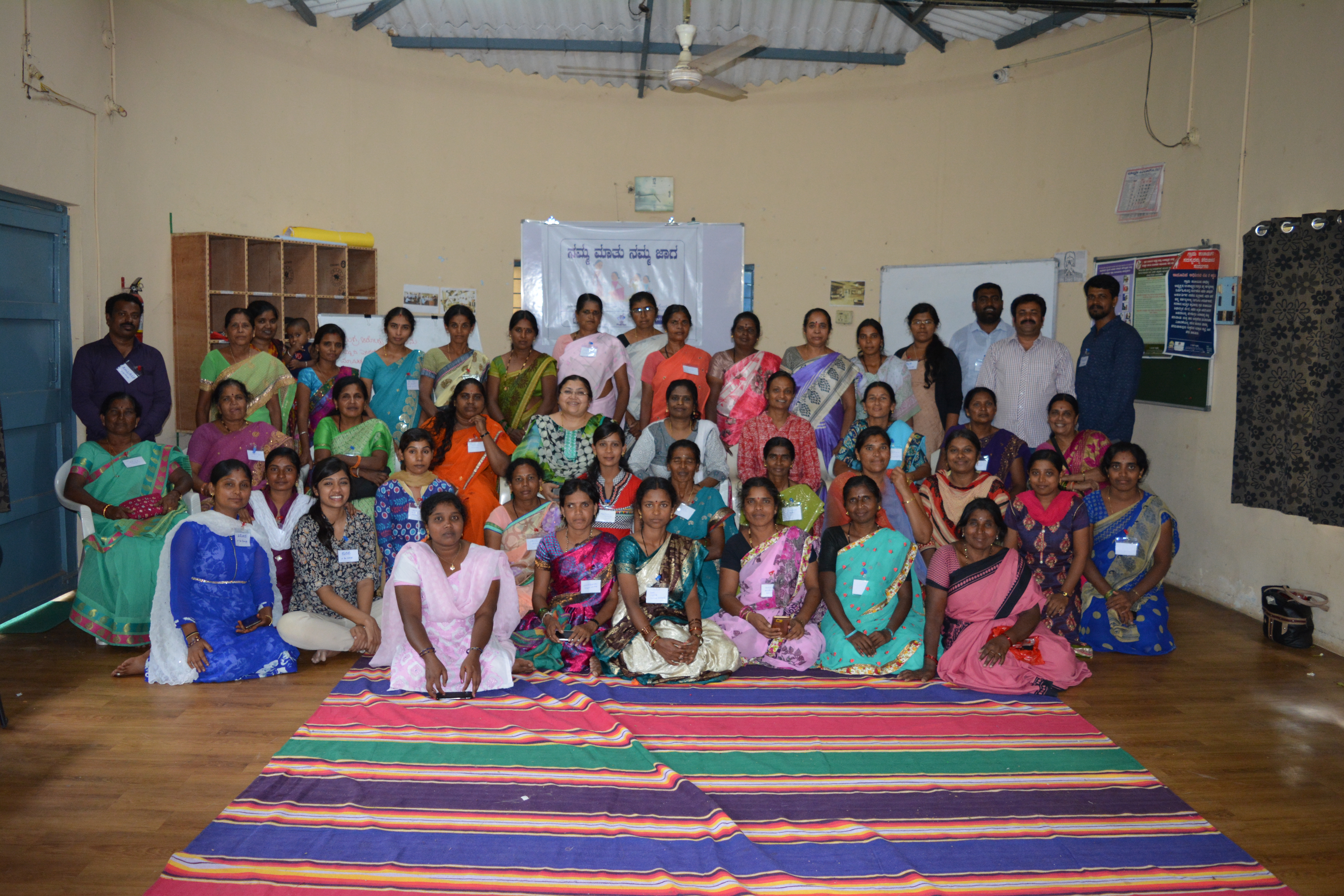
Paracounselors training: Part I
Sarada Mahesh | September 2018
Through workshops and discussions, IT for Change along with Samvada, trained anganwadi workers to be community counselors and aided them to better support to victims of violence

IT For Change in association with Samvada, an NGO based in Bangalore, organized a training workshop to hone the counseling skills of anganwadi workers from H D Kote district of Mysore, from September 17 to September 19, 2018.
Initially, when informed about the workshop, many were reluctant to attend. Some protested saying that if they were made to deal with cases of domestic violence, it would add to their existing workload. But later, 29 women who were deputed by the Department of Women and Child Development, Government of Karnataka, turned up for the workshop.
Over the next three days, the trainers spoke to the participants about the importance of taking care of themselves first and learning to resolve their own problems. This was because taking on someone else’s case of domestic violence could be personally emotionally exhausting as well.
The women participants were also taught the various approaches of counseling in order to get the necessary information from the victim-woman. For example, they were taught to read body language, maintain eye contact, develop listening skills and understand ethical rules such as respecting the confidentiality of the victim-woman.
Instead of adopting a lecture methodology, the trainers incorporated a variety of activities in the training, giving ample opportunity to the participants to interact with each other, share their experiences, and learn from one another. The activities were framed in such a manner that after their completion, the trainers engaged the women in discussions on concepts related to the activity. This ranged from the gender system and stereotypes, patriarchy and misogyny, crimes against women such as dowry, child marriage, trafficking, domestic violence and rape, and the reality of the institutions that have been set up to implement the law.
The women also shared the problems they faced while trying to help another woman. For instance, they’d receive threats from the husband or the family and experience a lack of a support system from the village members. The trainers and other participants engaged with this problem and one of the solutions provided was sharing the contact details of the Santhwana — an institution set up for the purpose of registering the complaints of crimes against women and reporting it to the police.
Towards the end of the training, the participants were asked to share their thoughts. The training was an eye opener for them, they said. They had always been aware of such problems in their society, but had never had the time to sit down and think about feasible solutions for them.
The training also provided a platform for the women to openly express themselves on untouched and unspoken topics such as inter-caste marriage and other personal problems they faced. They were also excited to attend the next two sessions proposed to be held, and said that they would implement the methodologies taught to them and would report back on the success and problems faced in its implementation.